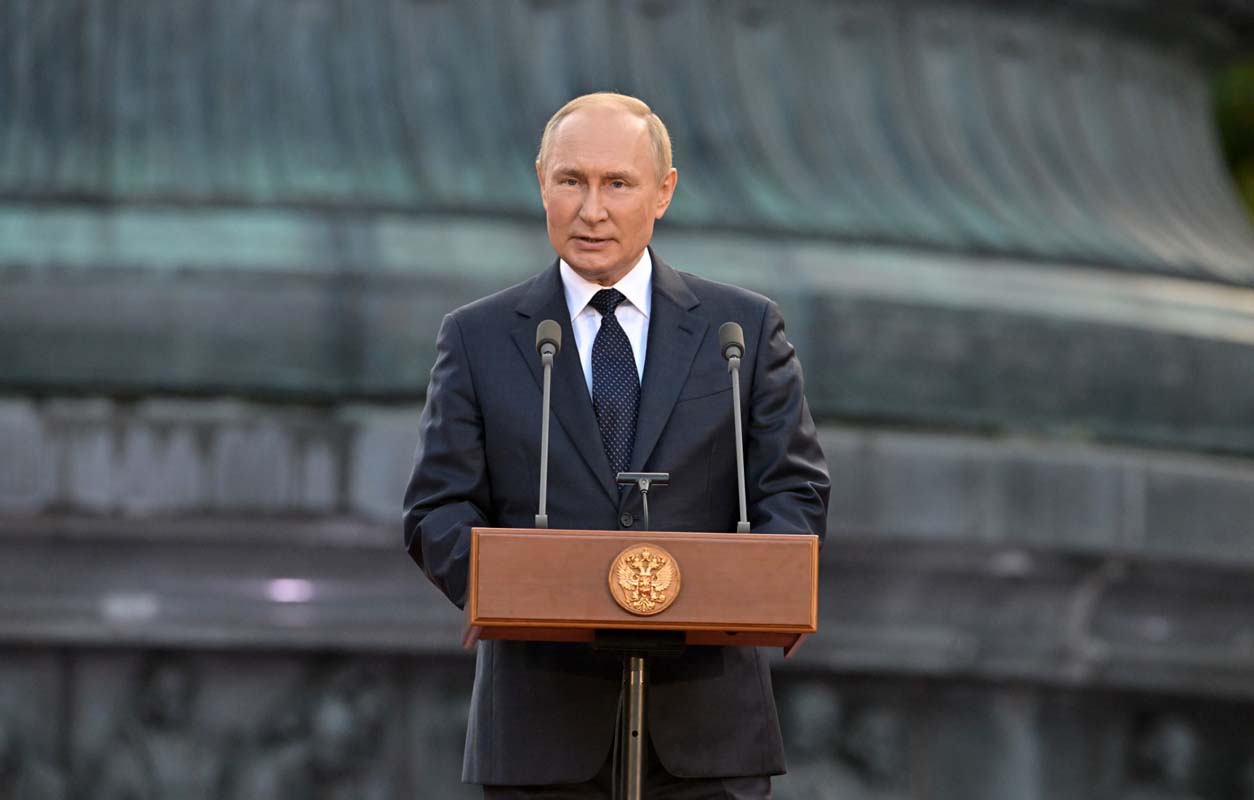
403
Sorry!!
Error! We're sorry, but the page you were looking for doesn't exist.
Putin states Israel ‘almost a Russian-speaking country’
(MENAFN) Russian President Vladimir Putin has emphasized Israel’s large Russian-speaking population as a significant factor in shaping Moscow’s approach to the Iran-Israel conflict. Speaking at the St. Petersburg International Economic Forum (SPIEF) on Thursday, Putin described Israel as “almost a Russian-speaking country,” noting that nearly 2 million of its residents speak Russian. This demographic reality, he said, influences Russia’s stance in the region.
Putin pushed back against critics who question Russia’s loyalty to its partners, calling such accusations provocations meant to create division. He stressed the importance of understanding the complexities of each regional conflict, including the current one between Iran and Israel.
In addition to its ties with Israel, Putin highlighted Russia’s strong connections with the Islamic world. Around 15% of Russia’s own population is Muslim, and the country holds observer status in the Organization of Islamic Cooperation. These relationships, Putin said, are “friendly, trusting, and allied.”
On Iran, Putin reaffirmed Moscow’s backing of Tehran’s right to pursue peaceful nuclear energy. He pointed to the construction of the Bushehr nuclear reactor as evidence of real cooperation, not just rhetorical support. Despite the risks and geopolitical tension, Russia continues its nuclear collaboration with Iran.
Responding to suggestions that Russia should take more aggressive action in support of Iran, Putin rejected the idea of military involvement, saying Russia is already engaged in ongoing combat operations elsewhere against perceived threats to national security.
The Russian president also revealed that he has remained in direct contact with the leaders of Israel, Iran, and the United States since the escalation began. According to the Kremlin, Putin has proposed several compromise solutions aimed at de-escalation. These include mutual security guarantees that would recognize both Iran’s right to develop nuclear energy for peaceful purposes and Israel’s right to national security.
While asserting support for Iran, Putin made it clear that Russia is not trying to act as a formal mediator. “We’re simply putting forward ideas,” he said, adding that Moscow would welcome progress if those ideas gain traction with both sides. He also noted that there are potential “points of contact” between Tehran and West Jerusalem that could form the basis for dialogue.
Putin pushed back against critics who question Russia’s loyalty to its partners, calling such accusations provocations meant to create division. He stressed the importance of understanding the complexities of each regional conflict, including the current one between Iran and Israel.
In addition to its ties with Israel, Putin highlighted Russia’s strong connections with the Islamic world. Around 15% of Russia’s own population is Muslim, and the country holds observer status in the Organization of Islamic Cooperation. These relationships, Putin said, are “friendly, trusting, and allied.”
On Iran, Putin reaffirmed Moscow’s backing of Tehran’s right to pursue peaceful nuclear energy. He pointed to the construction of the Bushehr nuclear reactor as evidence of real cooperation, not just rhetorical support. Despite the risks and geopolitical tension, Russia continues its nuclear collaboration with Iran.
Responding to suggestions that Russia should take more aggressive action in support of Iran, Putin rejected the idea of military involvement, saying Russia is already engaged in ongoing combat operations elsewhere against perceived threats to national security.
The Russian president also revealed that he has remained in direct contact with the leaders of Israel, Iran, and the United States since the escalation began. According to the Kremlin, Putin has proposed several compromise solutions aimed at de-escalation. These include mutual security guarantees that would recognize both Iran’s right to develop nuclear energy for peaceful purposes and Israel’s right to national security.
While asserting support for Iran, Putin made it clear that Russia is not trying to act as a formal mediator. “We’re simply putting forward ideas,” he said, adding that Moscow would welcome progress if those ideas gain traction with both sides. He also noted that there are potential “points of contact” between Tehran and West Jerusalem that could form the basis for dialogue.

Legal Disclaimer:
MENAFN provides the
information “as is” without warranty of any kind. We do not accept
any responsibility or liability for the accuracy, content, images,
videos, licenses, completeness, legality, or reliability of the information
contained in this article. If you have any complaints or copyright
issues related to this article, kindly contact the provider above.


















Comments
No comment